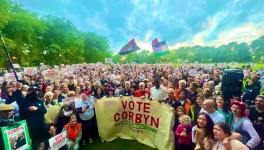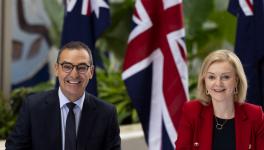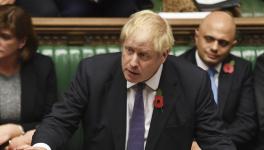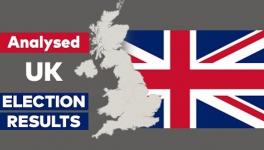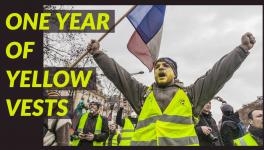The European Parliamentary Polls And the Challenges of the Left
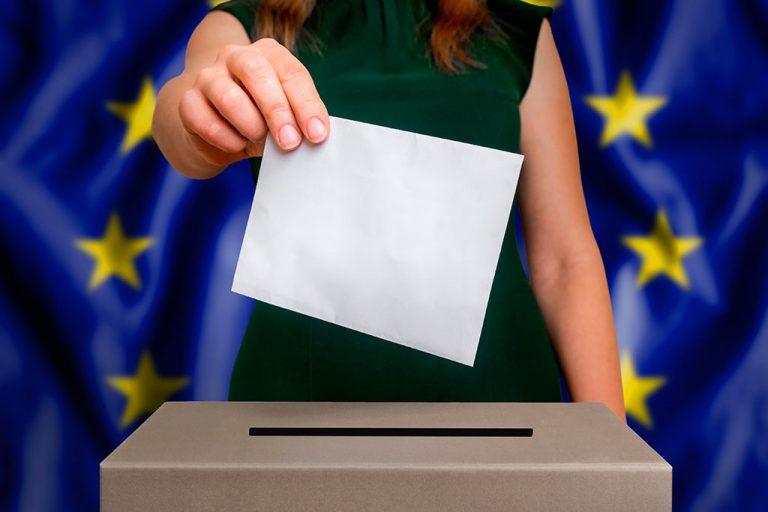
The upcoming elections for the European Parliament (EP) have drawn the attention of the world for more than one reason. Brexit and rise of extreme right-wing nationalism have become key issues in these elections. The right wing has waged an aggressive, xenophobic campaign on the issue of immigration even as conservative and centrist forces also pander to similar sentiments. Most opinion polls predict gains for the far right and their presence in the EP is slated to go up significantly. Peoples Dispatch talked to Ivan Orosa, a researcher & international political analyst, on issues such as the impact of ongoing popular movements in the continent, the chances of the left parties and others.
Abdul Rahman: How do you see the role of European Parliament in the overall politics of the European Union?
Ivan Orosa: First of all, we have to remember that the European Parliament is a body with limited powers with respect to other bodies (the European Commission or the European Council, for example). Contrary to say, a standard legislature, it doesn’t have legislative initiative, which is a prerogative of the executive branch of the EU (the Commission), Instead, the parliament is left with the task of approving and amending legislation proposed by the Commission, usually in co-decision with the Council (the body representing the nation states’ executives).
Furthermore, the role of the parliament in the election process of the main authorities of the European Union is secondary (the president of the council, the president of the central bank), although the president of the commission may be proposed by the plenary of the Parliament.
Next to these accompanying tasks, the MEPs (751 up to now, although that may change after Brexit is completed) basically devote their time to participating in plenary debates, as well as in committee hearings, passing non-binding resolutions, and the like. However, they are very active in political engagement activities – advocacy, communication, engaging with lobbies, etc.-
The parliament does play a role in the foreign policy of the European Union, for instance when it comes to ratifying new treaties. However, this capacity is limited because the EU’s foreign (and security) policy is simply not developed enough when it comes to core issues: it is the states themselves that conduct their own foreign policy. The parliament does, however, play a role in medium-to-high-impact finance instruments, for instance the assignment of development grants to third countries.
All in all, you can’t really say that the parliament plays a fundamental role in the European citizens’ lives. It doesn’t really affect the actual situation of the people. This has been perceived by the bulk of the European constituency (375 million people), and historically, the turnout of the European election has steadily declined since 1979. In 2014, it was a mere 42% (as opposed to an average turnout of 68% in national elections).
There is a established, persistent perception of a democratic deficit in the European Union institutions. This has created an ever-growing gap between the Brussels establishment and the European peoples. European bureaucrats are perceived as mandarins, with sky-rocketing salaries, controlling the mechanisms of a black box that deprives the Europeans of democratic control and sovereignty on their everyday issues.
AR: What impact are popular mobilizations, such as Yellow Vest Movement, likely to have on these elections?
IO: Traditionally, left-wing social and popular movements in Europe have been skeptical of European-level politics and institutions. This is pretty logical, if you consider that the European Union is basically an instrument of capital to advance neoliberal policies and harmonize a legal and normative body across countries to systematically favor the privileged. They have systematically criticized austerity policies, the design of the Euro, deregulation in the financial and banking sectors, and so forth.
The Yellow Vests movement follows the path of the radical critique of the neoliberal design of the European Union. Since its first mobilizations, there have been serious attempts to channel the movement to an institutionalized arrangement, so to speak. The establishment wants them to become a political party. These attempts have been particularly intense by the media and traditional political parties, and whereas the tension inside the movement itself is strong (between those who want to stay as a popular movement, as opposed to those who wouldn’t mind participating in institutional and electoral policies), it is my understanding that the majority of individuals and organizations still favor radical stances, and dislike or openly criticize institutional politics and electoral processes.
Furthermore, the Yellow Vests Movement includes a number of organizations that favour either abandoning the euro or the European Union altogether. They constitute transnational networks that notwithstanding their limited impact on domestic or local politics, exert a notable ideological influence inside the movement. They consider Europe as non-reformable, and therefore, they have little interest in participating in electoral politics. This of course doesn’t mean that they’re unable to engage in networks and forge alliances aiming at impacting the EU political environment and policies.
AR: How important are the issues of foreign policy in these elections?
IO: In general, my impression is that foreign policy issues at the European level are just too abstract for the average European citizen. No one really understands what the EU does regarding the so-called Common Foreign and Security Policy. Actually, you can’t really say the EU is able to do much, apart from keeping itself active in the field of trade and commercial policy, as well as liaising with the US and other allies in order to fulfill the orders that come from the other side of the Atlantic.
According to the last Eurobarometer (November 2018), the top five most important issues identified by the European citizens were: immigration, terrorism, the member states’ public finances, the economic situation, and climate change. The EU’s influence on the world (whatever that means) scored seventh. Also, in the recent debates held between the top six candidates to become the next president of the Commission, the main topics were: Digital Europe, Sustainable Europe and climate change policies, economic, single-market and job market issues… no one seems to be interested in foreign affairs or foreign policy. This sad reality, next to the catastrophic performance of the EU on issues like the refugee crisis, the Ukraine crisis or the absolute blindness when conducting region-level relations (for instance, regarding Latin America), is proof of the EU’s structural incapacity to perform as a global actor in today’s complex world of geopolitics.
AR: What is United Left’s position on the major issues such as immigration in these elections? What are their chances of winning? What in your opinion affects the electoral chances of the left?
IO: The Group of the United Left is the fifth-largest block represented at the European Parliament (52 seats). Currently, the three main blocks are the European Popular Party (EPP, Christian-democrats, conservative, 221 seats), the Progressive Alliance of Socialists and Democrats (S&D, social-democrats, reformists, 191 seats) and the European Conservatives and Reformists (ECR, right-wing, populists, euroskeptic, 76 seats).
In the forthcoming election, some issues are at stake regarding the composition of the different dominant blocks at the European Parliament.
First and foremost, the rise of far-right populist forces in the continent may provide the recently-formed European Alliance of People and Nations (EAPN, a new block built around Italy’s Matteo Salvini’s Lega Nord, France’s Marine’s Le Pen National Rally and Germany’s Alternative für Deutschland) the chance to become the second-largest parliamentary group in Brussels.
Secondly, when it comes to the Left, the agreement signed between Podemos (Spain), La France Insoumise and Bloco de Esquerda (Portugal) on April 2018 is likely to impact the internal dynamics of the Group of the European Left. This political move aims at changing the internal power balance in the group, led thus far by Germany’s Die Linke.
Thirdly, the uncertainty around the Brexit process remains. This is of course a major topic to be dealt with by the EU bodies as a whole, but when it comes to the European Parliament, we still don’t know what will happen with United Kingdom’s 73 seats (fourth largest country per MEP seats).
Fourthly, the good results obtained by Green parties in several countries (especially, in Germany, and good prospects in France) give them the hope that they can improve their results and challenge the rise of the far-right. Oddly enough, at this point in history, an alliance between the Greens and the liberals seems more likely than one between the Greens and the Group of the United Left.
In summary, the Left (and I am not including the social democrats here) is confronted with multiple challenges and the certain possibility to end their relative isolation in the larger context of the legislative work in Brussels. They aim at keeping, or at least not reducing substantially, their current level of representation, but their prospects are not the best at this moment.
This notwithstanding, the MEPs of the left know what they can and can’t do in Brussels. They are good, experienced cadre with solid networks knit around the coordinated work of the Group of the European Left and many allied social movements and popular organizations. They know they can’t substantially change the neoliberal, austerity-leaning policies of the EU, and certainly can’t have a substantial impact on some of the major political issues (immigration, monetary policy, investment plans and policies, foreign policy, commercial policy, and so on).
But they can, and will keep using the European Parliament as a privileged political platform to engage with different political movements and forces, in order to advance political agenda that upholds workers’ rights and social justice (denouncing transnational corporate power, defending labor rights and fighting against austerity measures, etc.). Another major topic where they expect to exert significant influence (and hopefully, political returns) is environmental policy: climate change, green jobs, sustainability. This will be a major battlefield in the next term, and a topic where an alliance between social democrats, liberals, greens and the left is not unlikely.
Get the latest reports & analysis with people's perspective on Protests, movements & deep analytical videos, discussions of the current affairs in your Telegram app. Subscribe to NewsClick's Telegram channel & get Real-Time updates on stories, as they get published on our website.









